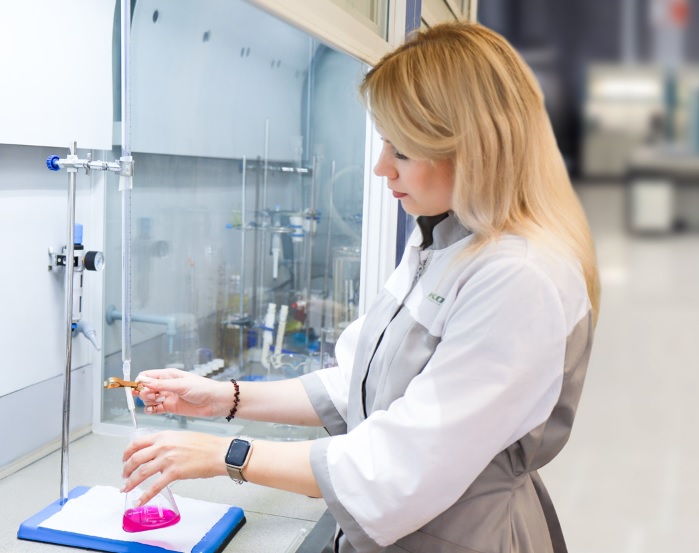Another stage of summer internships has been finished in the Oil & Fat Division. During it students from Russian universities can work in person on serious projects and begin to realize their potential. This year students from Voronezh State University of Engineering Technologies interned at our R&D center. How did their internship go? Why is foodtech one of the most promising career areas?
The students study at the university's Progressive Engineering School, an advanced program that allows them to apply the knowledge of food technology from their first years of studying. During their internship at the company's R&D center, the students were given the opportunity to immerse themselves into the operation of a large enterprise and see production processes with their own eyes.
“Now I am going to advance to my second year at the University,” said Daria Bozhko. “During my internship I worked at the Research Establishment “Kruassanov” - a name jokingly used by “EFKO” technologists to describe the Centre for Applied Research of the Oil & Fat Division in Alekseyevka. In fact, it really looks like a research institute. The company's ingredients are tested here. They are used in the production of confectionery, bakery, milk-containing and vegan products. The mentors sorted all the details out on the basis of real examples.”
Lectures and master classes are conducted by real practitioners – leading experts of the specialized departments of the Oil & Fat Division. This helps to form not only a complete idea of the future profession, but also a clear roadmap for building a future career.
“One of the most interesting tasks during the internship was immersion into the work of the Innovation Research Laboratory,” said Anastasia Predybaylo. “The staff analyzes the composition of ingredients and, using special methods, check whether they contain certain “contaminants” that may appear during the production process or, for example, penetrate through the packaging. For this, they use professional equipment: gas and liquid chromatographs and many other things. Such analysis enables us to guarantee the safety of the products.”
These days foodtech is one of the most promising industries for a career. It is called a new “Silicon Valley”, and food technologists are called “taste engineers”.
“New niches are opening up on the domestic ingredients market. For example, the production of confectionery fats with exotic oils and new-generation sugar alternatives, such as sweet proteins. We are in search of those who can implement all these tasks,” noted Alena Surkova, Director of Confectionery Department of the Oil & Fat Division.
Working with food technology requires knowledge, the ability to learn quickly and to multitask: be prepared to spend a day for production, then go on a business trip to partner plants to help adapt ingredients for their production; or train other employees. The main result is a product that appears on the shelves of Russian stores or is exported.
“You need to approach your tasks with full responsibility, even if you are still “just an intern”. Most of the managers in our division started their careers here shortly after graduating from universities and rose to become heads of departments and directors of industry areas,” said Pavel Menshikov, Deputy Director for Innovations of the Oil & Fat Division. “Take the initiative! We invite young, energetic and ambitious students and graduates who are ready to reveal their potential.



